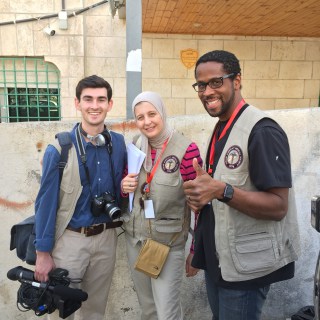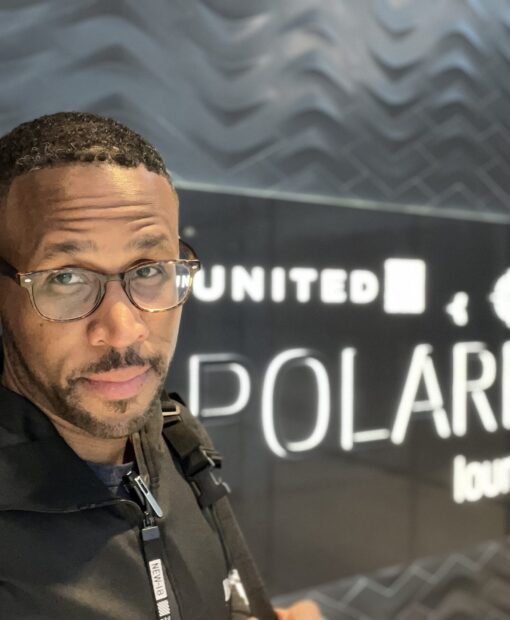Today while in Sweileh Jordan caring for Syrian refugees, every member of our medical team cried. Earlier that day we were all strangers coming together for a common goal. But in that moment, sitting there in a small blue exam room with dusty curtains, we each cried.
On day 5 of the Jordan medical mission I found myself in Sweileh, a small town to the north of the capital city Amman. Our team today was smaller than on previous days and included myself, an Internist from Chicago, a Dermatologist from Ohio and a General Practitioner/Acupuncturist from New York City. The Sweileh clinic is a multi-specialty clinic that provides services to the local Syrian refugees who again lack access to medical services because they do not reside within refugee camps. Like all the days before, we arrived to find a waiting room that was bursting at the seams with people needing to be seen. The clinic director took me to an exam room with powder blue walls where I found an exam table, a pretty decent ultrasound machine and a closet full of medications. As we got settled, the gracious clinic staff brought us coffee, tea and pastries and advised us that they were available if there was anything that we needed. I have to admit that I always felt a bit guilty when clinic directors brought us food and beverages but anyone who has travelled in the middle east knows that this is just typical Arab hospitality. Great staff, nice facilities and a table full of coffee, tea and pastries! The day was definitely looking up.
Many of my patients in Sweileh that day were pregnant and sadly not a single one of them had received regular prenatal care. As a women’s health physician, I always espouse the importance of regular Obstetrical care even for the healthiest and lowest risk patients. None of these patients however were anything remotely close to low-risk and as I learned the complexity of their medical and obstetrical histories I was truly shocked and in many cases afraid for them and their unborn children. I had many patients who had four, five and even six prior Cesarean Sections, I had a patient with a placenta previa (when the placenta covers and blocks the cervix) which can lead to life threatening bleeding for both mom and baby, as well as many patients who had experienced one or more pregnancy with a fetal loss. None of these women had even seen a doctor during their pregnancy and many were already in the third trimester.
My fifteenth patient of the day had a coagulopathy (a condition that causes the formation of blood clots that can be potentially fatal for mom and baby) and was started on blood thinning injections (a treatment that is crucial for the health and wellbeing of both mom and baby) at the start of her pregnancy. She was one of the fortunate ones because she was able to scrape the money together for a single prenatal visit last October. Since she hadn’t seen a physician in six months however, she had completely run out of her injections months ago. In the United States or Europe these patients would be seeing high risk pregnancy specialists weekly at a tertiary care center getting fetal monitoring and regular ultrasounds. This patient had seen a physician twice in seven and a half months (including me) and had no prior testing. Her primary reason for coming to the clinic was to get samples of Lovenox (her blood thinning injection) and to have an ultrasound (this is the point in her last pregnancy when her baby died in utereo which naturally concerned her). Most of our patients were unable to afford the medications that we prescribed and if we didn’t have samples for them in our bags, they would likely never be treated. When we informed the patient that we didn’t have samples of Lovenox, she gave us a brief blank stare, gestured towards the sky and in Arabic said “God will provide”, getting up to leave. Thankfully God did provide. Kudos to one of the local medical student volunteers who was working with us, he called the local pharmacies to determine which one charged the least for the medication. Kudos to my interpreter who literally emptied her pockets to purchase this stranger’s medication at a cost of 70 Jordanian Dinars (about $100 US). Today we were there and today we purchased her medications. What’s going to happen tomorrow?
Like all the days before it, this day was also flying by as patient after patient filed into and out of my room. One of our last patients of the day was a 35-year-old woman from the northern Syrian town of Aleppo. She came in with two of her four children, a cute ten-month old baby boy who like many of the refugee children looked small for his age (malnutrition is rampant) and a gorgeous five-year-old girl with green eyes and blue pants. The young girl bounced around the room with the energy that most five year olds possess while our patient cradled her infant son in her arms. Her presenting complaint was rather routine, she had frequent headaches and she wanted to start contraception. After taking a history, discussing her various options and deciding upon a plan, I finished the visit with the question that I always ask, “do you have any other questions or concerns that you need to discuss?”. The patient gave me a long glance as her eyes began to fill with tears and she slowly began to speak to my interpreter, her voice now much lower and more hesitant than it had previously been. She stopped multiple times to take deep breaths and wipe the tears that by now were streaming down her flushing cheeks. Our time in Jordan was filled with tragic stories-missing, maimed and dead children, torture victims of all ages, families separated by the war, homes lost, lives lost. But somehow this time it seemed different. As the patient continued to speak through her tears, I noticed that my interpreter was also beginning to cry. After taking a moment to compose herself, with a voice a bit weak and cracking, the interpreter began to relay our patient’s story. As the war violence worsened, she fled Aleppo with her four children. While fleeing this mother of four became a mother of three as her second born was taken by artillery fire. She and her remaining three children did make it safely to Jordan and to the town of Sweileh along with her husband. A husband who beats her regularly and mercilessly. She described frequent beatings to the head, neck and body and then she stopped speaking and again took a few deep breaths. After a long sign she began to describe the beatings that he inflicts also upon the children. The beautiful little girl with the green eyes and blue pants that was still bouncing back and forth in our exam room, the beautiful little girl who was forced to flee her home, her country and everything that she knew, the beautiful little girl who has experienced things that most adults couldn’t handle including the violent loss of her big brother. He beat this beautiful little girl and he beat her regularly. During a recent beating her picked this child’s helpless little body up and threw her against a wall resulting in an abdominal wall laceration that required emergency surgery. Like all the other traumas in her young life, she managed to survive this one too. All I could think in that moment was how much trauma can this beautiful little soul endure and will she survive the next trauma? Our patient never asked for help, she never asked for advise. She just unburdened her soul in what was likely the first safe environment she had experienced in years. The patient continued to cry. My interpreter continued to cry. I cried. Today we cried. We had been strangers just moments before and now the three of us just sat there in that small blue room with the dusty curtains and together we cried.
Never before as a physician have I felt so helpless. I can usually fix problems or at east make a valiant effort to fix them. But today I had no answers, I had no solution. Like most refugees, our patient had no money, no family, no social safety net and no way out. After a few long moments with not a word spoken between the three of us, we gathered her contact information and promised that we would do something. I had to be honest and tell her that I had no idea what we were going to be able to do but I promised that we would try our absolute best to do something, anything. Thankfully this was one of our last patients because after this exchange I was physically and emotionally drained. Living ten minutes of this woman’s reality had drained me, I can’t even imagine what living this reality everyday does to her. And so our day in Sweileh came to an end and we were soon back in our van navigating the busy streets of Amman.
So, you are probably wondering what happened to this patient. What miraculous services were we able to provide for her and her beautiful children? How did we extricate them from this hell within the hell that is already a refugee’s everyday existence? What was her happily ever after?
In a perfect world we would have found a shelter with available space willing to accept her. In a perfect world there would be no need for such a shelter. Well, the world isn’t perfect and this fact is no truer than in the Syrian conflict. We made calls, we spoke to some local contacts and we even were able to reach out to the patient again. The answers we received provided an infinitesimally small sliver of hope but for a refugee infinitesimally small is better than what they would otherwise have. “There just aren’t many services like this here in Jordan, especially for refugees” we were told. “Don’t expect much” we were warned, but “we will do what we can do” we were assured. Our local contact reported to us the next day that he did call our patient to inquire further about what she was hoping to do but she was unable to speak because her husband was home earlier than expected. He didn’t allow her to have phone calls, have visitors or to leave the home so he didn’t know when he could reach out to her again. That was our last update.
As I was in my hotel room packing my things away preparing to return home to the states I came across her name and telephone number on a small slip of paper. The reality is that there is likely nothing more that I can do for her especially being outside of Jordan. Somehow, I just couldn’t bring myself to toss that little piece of paper into the trash with all the other miscellaneous items I was emptying from my bag and pockets. The world has already discarded her and her children and while it will probably be little more than symbolic, I just couldn’t bring myself to do the same. And so, as I finish this blog sitting in seat 21A on a Boeing 777 flying high above the big bad world below, her name and phone number sit in the front pocket of the bag sitting beneath my seat. Today, I cried.












 June 26, 2017
June 26, 2017 


 October 20, 2023
October 20, 2023 
